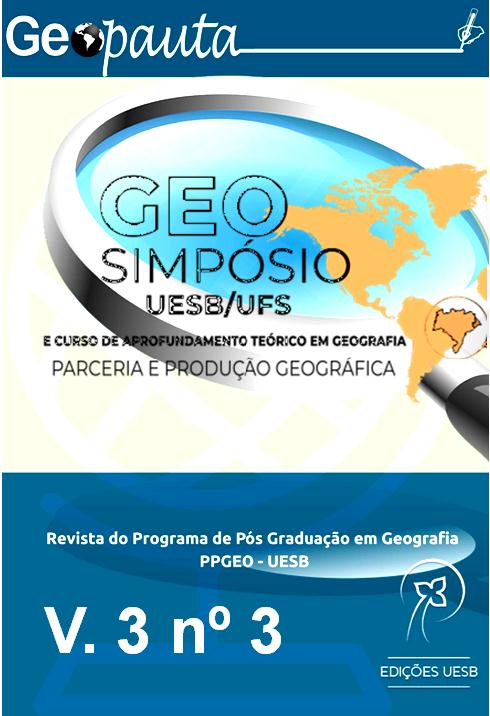Advancement of capital and social barbaries in the brazilian countryside
DOI:
https://doi.org/10.22481/rg.v3i3.5832Keywords:
Capital; Trabalho; CamponesesAbstract
The present article's objective is to analise the ways of capital expansion in the countryside and its interventions on work, also linking, dialectically, the context of structural crisis and the way of subordinate insertion of brazilian economy in the social division of labor, where it highlights the production of primary products. therefore, at up to ……………………………………….
Downloads
Metrics
References
LESSA, Sérgio. Mundo dos Homens. Trabalho e Ser Social. São Paulo: Instituto Lukacs, 2012.
LUXEMBURGO, Rosa. Introdução à Economia Política. São Paulo: Martins Fontes. 1ª Ed. s/d. Tradução de Carlos Leite.
MARX, Karl. O Capital: crítica da Economia política. Vol. 1, Tomo 1. São Paulo: Abril Cultural, 1983.
MESZAROS, István. Para além do capital. Rumo a teoria da transição. São Paulo: Expressão Popular, 2002.
MITIDIERO JUNIOR, Marco Antonio; MARTINS, Lucas Araújo; SILVA, Ana Mikaelly dos Santos; NASCIMENTO, André Paulo do. Ataques aos direitos dos povos do campo: as ações do Legislativo e Eecutivo Federal. In: Cadernos Conflitos no Campo Brasil 2016. Goiânia: CPT Nacional – Brasil, 2016. 232 páginas ISSN 1676-661X
OLIVEIRA, Ariovaldo Umbelino de. A agricultura Camponesa no Brasil. 2ª Ed. São Paulo: Contexto, 2001.
OLIVEIRA, Transformações territoriais recentes no campo brasileiro. Prova para provimento de Professor Titular. Departamento de Geografia. Universidade de São Paulo, 1998.
PERREIRA, Lara Barros. O processo de criminalização dos movimentos sociais em luta pela terra frente às investidas do capital na (re)produção camponesa. Monografia. (Graduação em Geografia). Departamento de Geografia. Universidade Estadual do Sudoeste da Bahia, 2018.
RODRIGUES, Fernanda Oliveira. A Tragédia Faústica do Capital no Campo: Mineração e Conflitos por terra e água nas comunidades camponesas de de Caetité e Pindaí/BA. (Dissertação). Mestrado em Geografia. Programa de Pós-Graduação em Geografia. Departamento de Geografia. Universidade Estadual do Sudoeste da Bahia, 2019.
ROTTA, José Heleno. Sobre a oposição entre o rural e o urbano em Marx e sua atualidade. In: Anais do II Encontro Nacional de Economia Política. PUC/SP, 27 a 30 de maio de 1997. P. 459-477. Tradução de Javier González-Pueyo.
SADER, Emir. (Org.) 7 Pecados do Capital. São Paulo: Expressão Popular, 2001.
SOUZA, Suzane Tosta. Da negação ao discurso hegemônico do capital â atualidade da luta de classes no campo brasileiro. Camponeses em luta pela terra no Sudoeste da Bahia. Tese. (Doutorado em Geografia). Núcleo de Pós-Graduação em Geografia. Departamento de Geografia. Universidade Federal de Sergipe. São Cristóvão: SE, 2008.
SOUZA, Suzane Tosta; SANTOS, Jânio Roberto Diniz dos. A face e as múltiplas facetas da barbárie societal no campo brasileiro: algumas considerações. Rev. NERA. Presidente Prudente. V. 21, n. 44, pp.14-38. Set.-Dez./2018 (ISSN: 1806-6755).
Downloads
Published
How to Cite
Issue
Section
License
Copyright (c) 2019 from the Geopauta Journal and the Author(s)

This work is licensed under a Creative Commons Attribution 4.0 International License.
Copyright
Authors must retain unrestricted copyright and grant the Geopauta the first publication with the work simultaneously licensed under CC BY which allows others to share with recognition of each author's authorship in the initial publication in this Journal
Intellectual Property and Terms of Use
Geopauta adopts the Free Access policy in accordance with Open Access - OAC recommended by DOAJ and in accordance with the SciELO Criteria, under a Creative Commons CC By Attribution 4.0 International License, allowing immediate free access to the work and allowing any user to read, download, copy, distribute, print, search or link to the full texts of the articles, track them for indexing, pass them as data to software or use them for any other legal purpose.
Geopauta attributes the CC BY. license. where it is allowed without restrictions:
Share — copy and redistribute the material in any medium or format for any purpose, even commercial. as long as they give due credit for the original creation.
Adapt — remix, transform, and create from the material for any purpose, even commercial purposes, as long as due credit is given for the original creation.












